

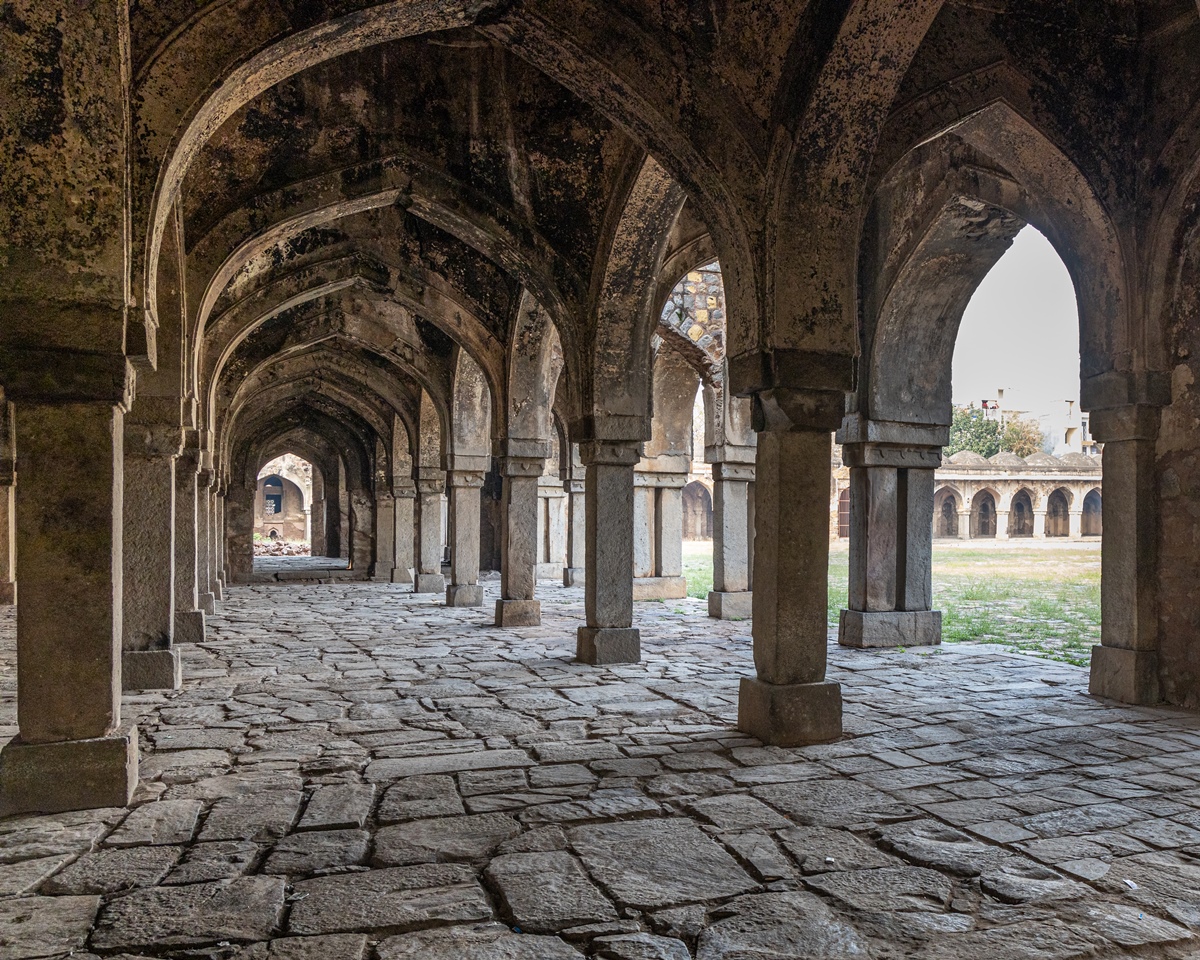
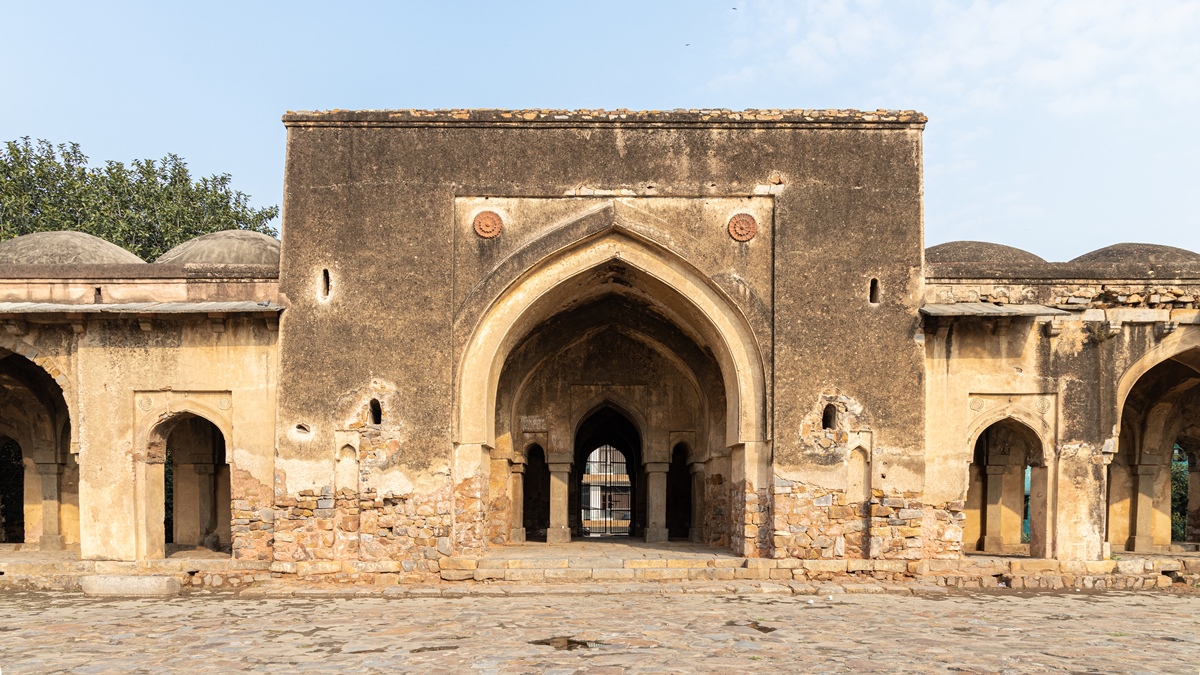
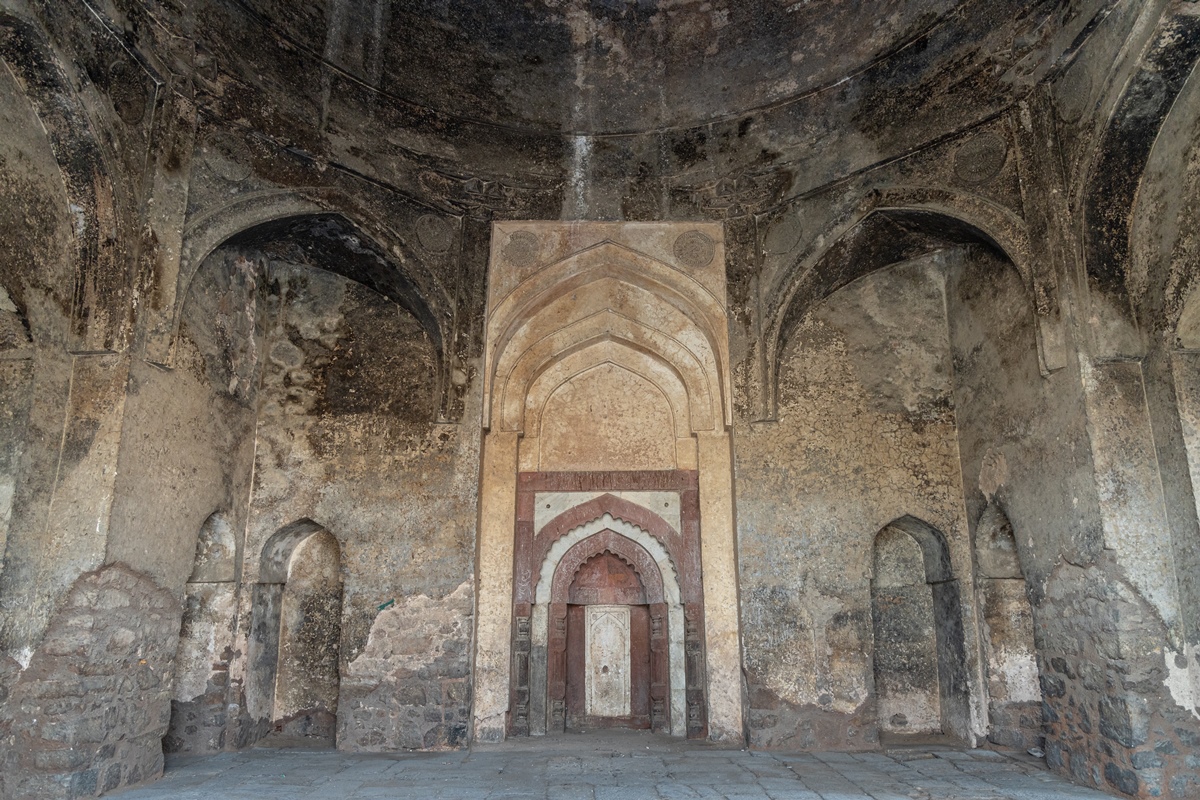
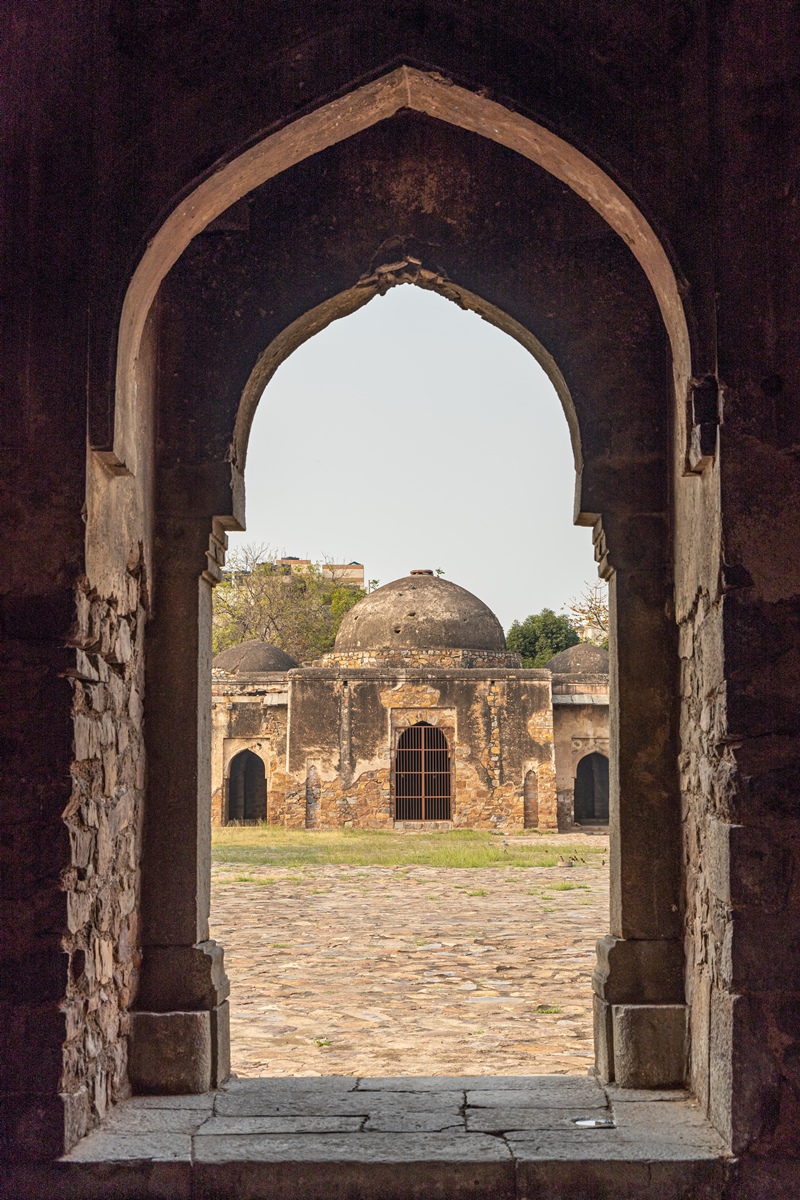
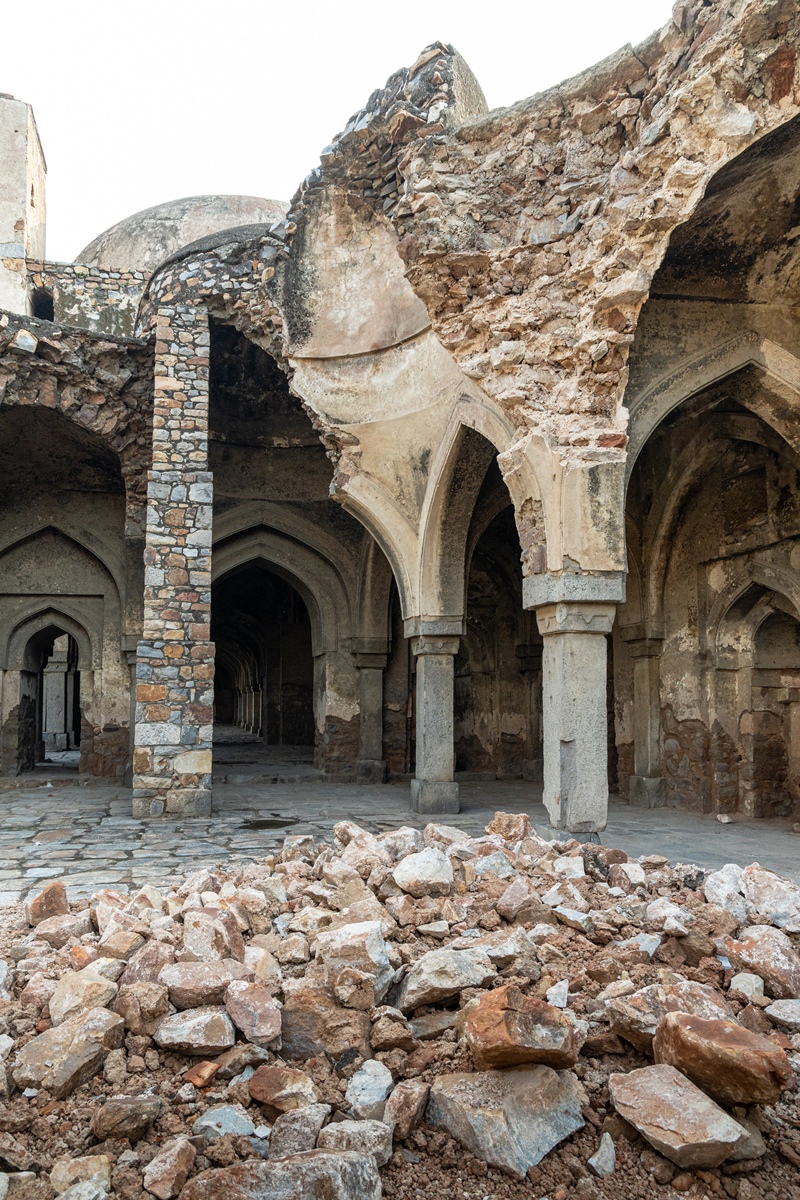
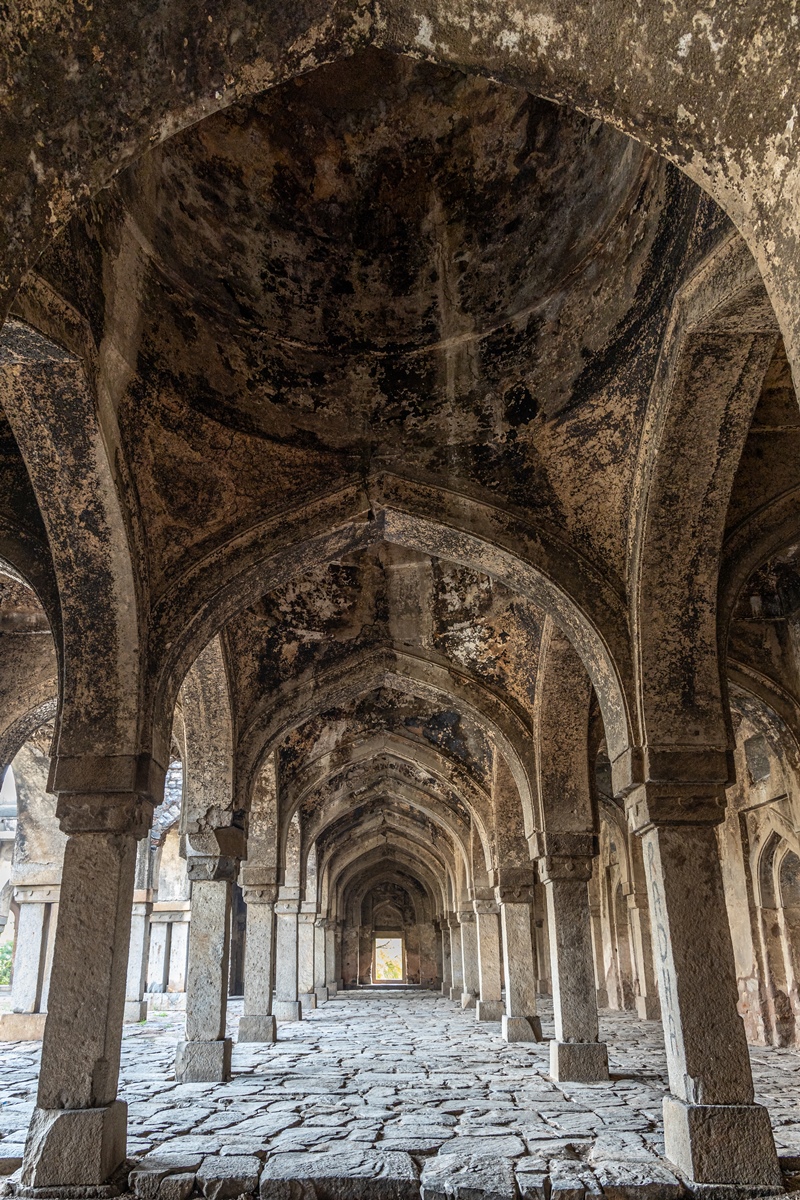
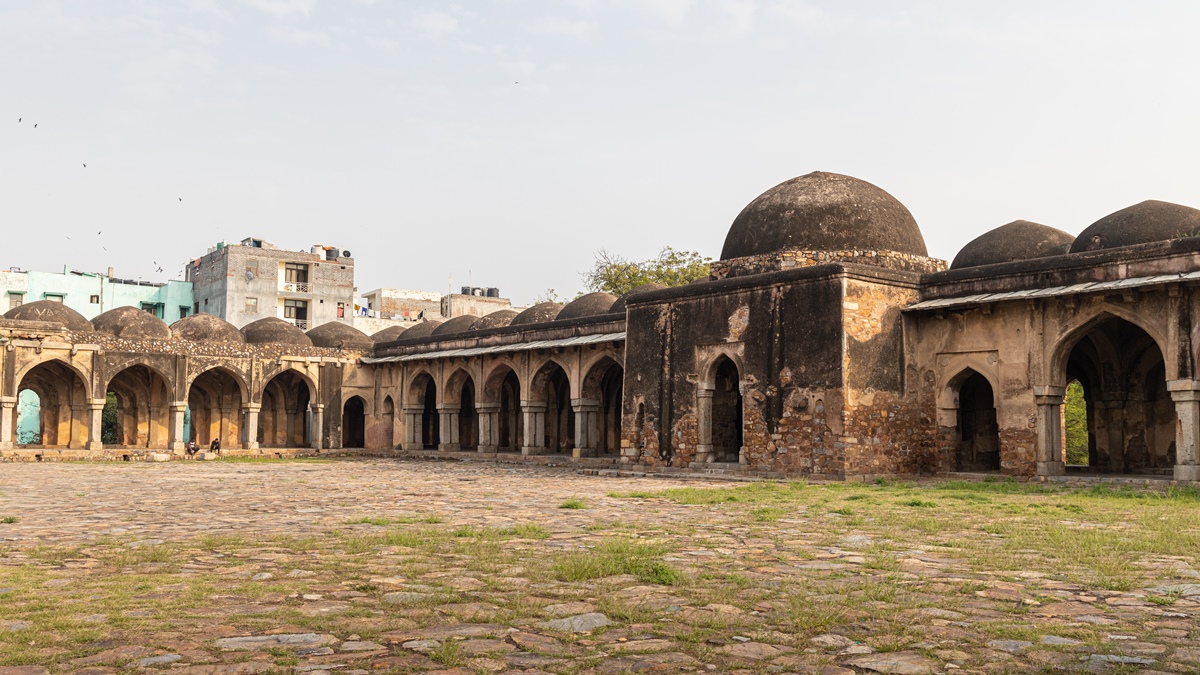
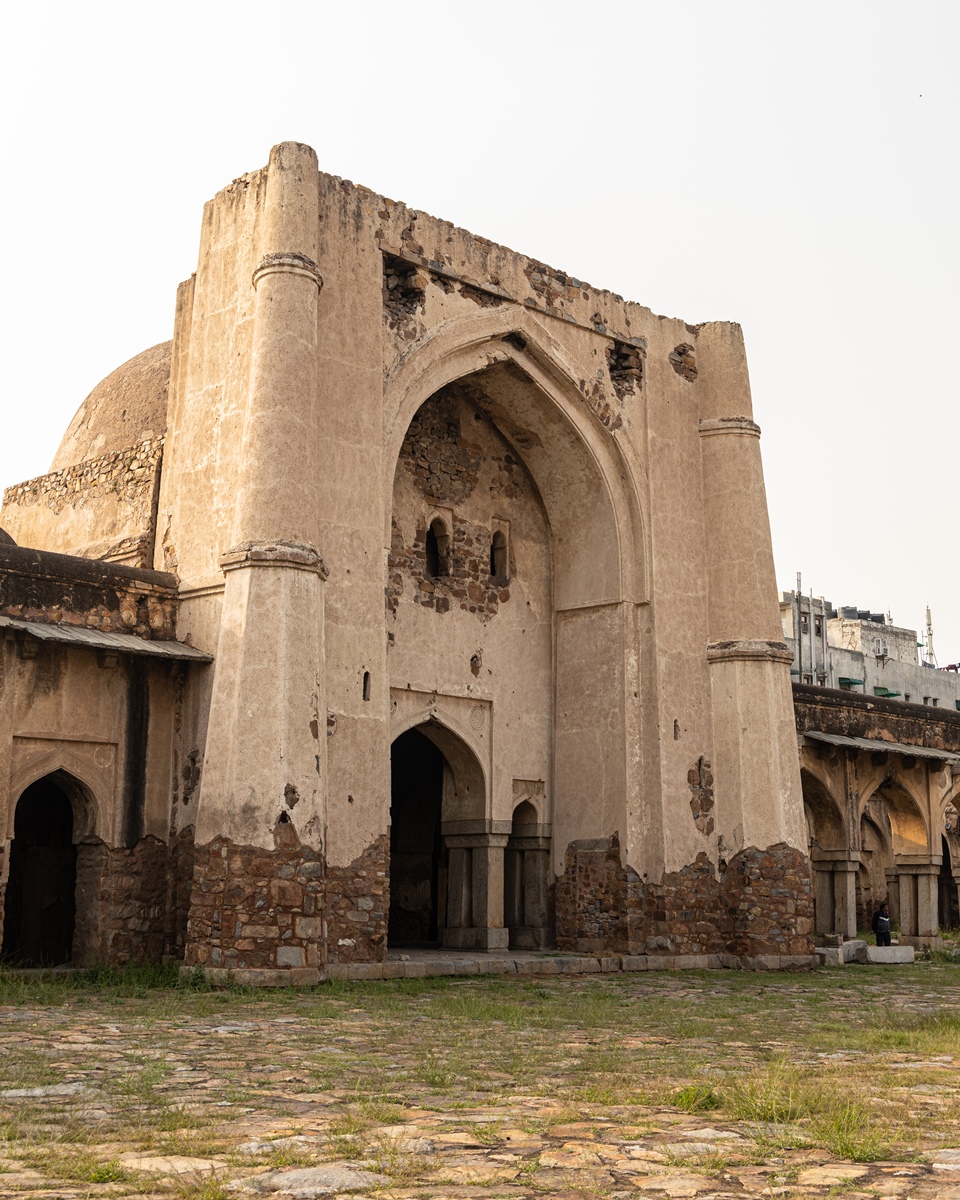
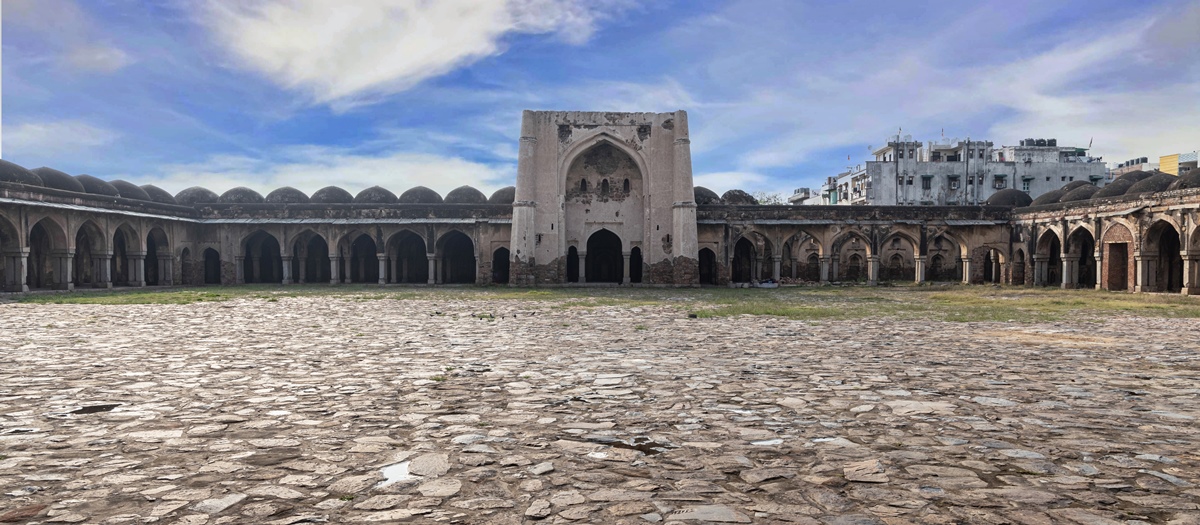
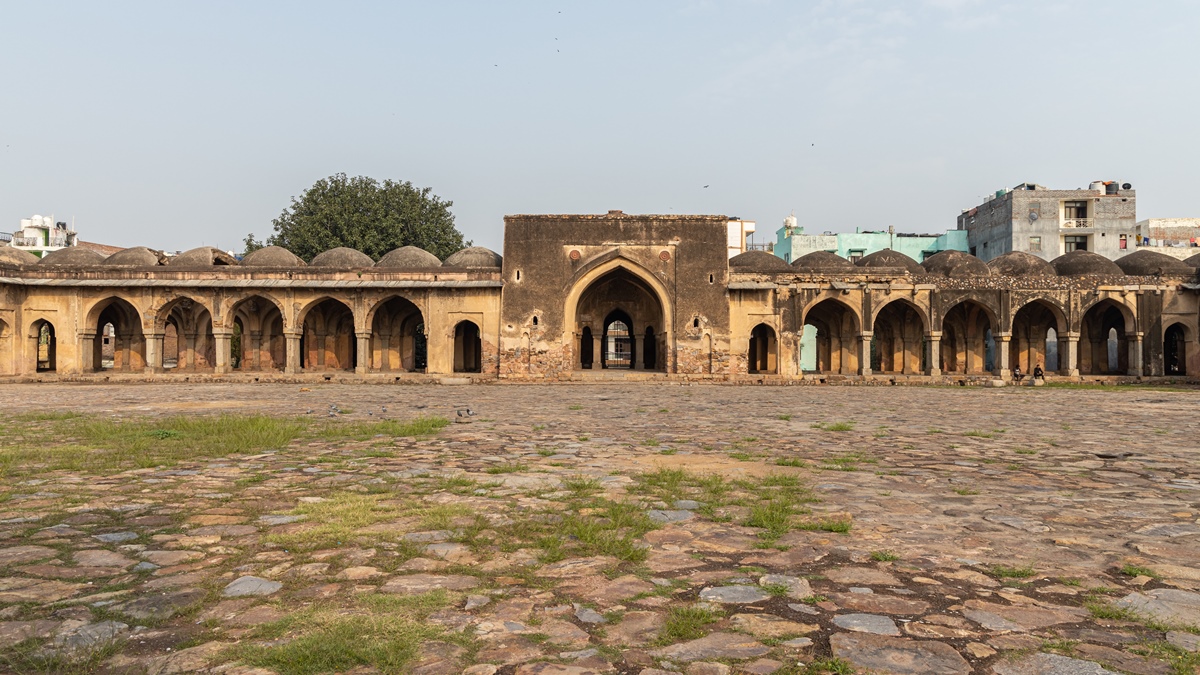
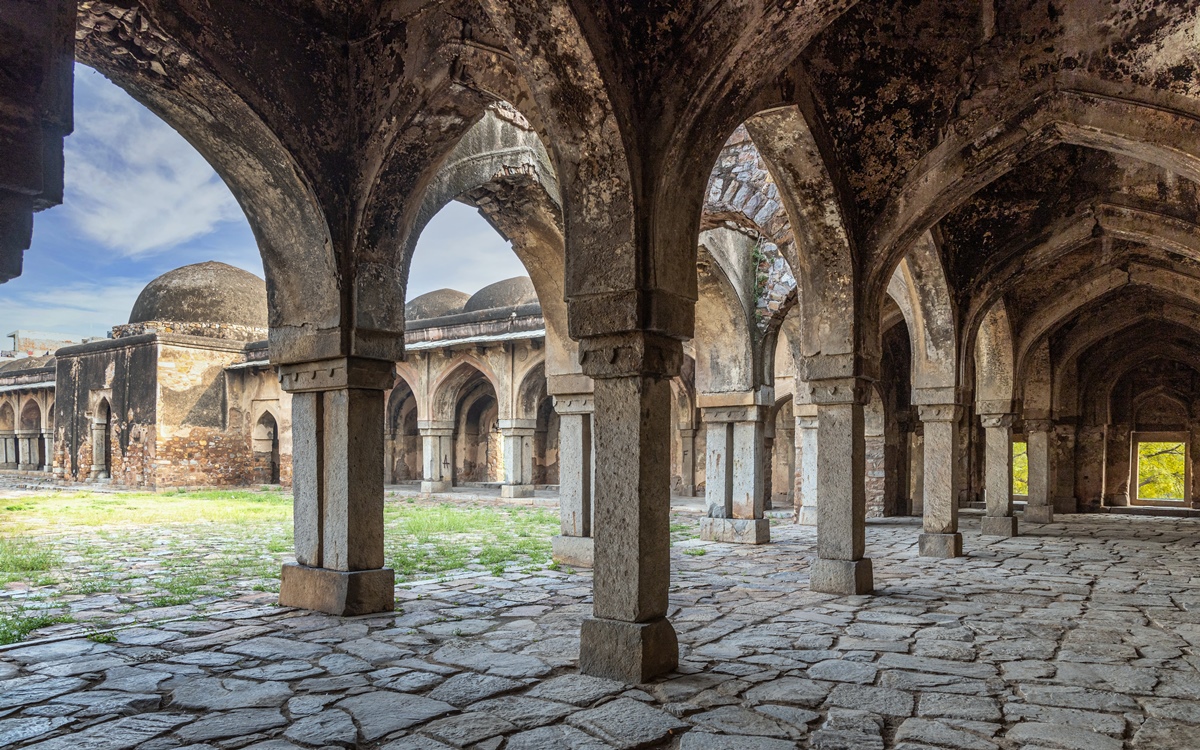
The Begumpur Mosque, also known as the Jam'i Masjid of Jahanpanah, was a significant mosque built during the Tughluq dynasty in the 14th century. It was located in the heart of Jahanpanah, the capital city of the Tughluq sultans.The Nearest Bus Stand- Begumpur (Malviya Nagar), 6 min walk,, The Nearest Metro Station - Hauz Khas, 18 min walk Nearest Railway Station- Hazrat Nizamuddin Railway Station Nearest Airport- IGI
The Begumpur Mosque, a magnificent testament to the architectural prowess of the Tughlaq dynasty, stands as a poignant reminder of Delhi's rich Islamic heritage. Located in the heart of the city, its history remains shrouded in some mystery, with two competing theories regarding its patronage. Historical Context: Jahanpanah: Built by Muhammad bin Tughluq in 1327 AD, Jahanpanah, meaning "the center of the world," aimed to fortify the sultanate against external threats. This ambitious city boasted thirteen gates and numerous monuments, showcasing the architectural ambitions of the Tughluq rulers. Patronage: Two Contending Theories: Muhammad bin Tughluq: The first theory suggests that the mosque was constructed during the reign of Muhammad bin Tughluq in 1343 AD, under the guidance of the renowned Iranian architect Zahiruddin al-Juyush, also credited with building the Khurramabad Palace. Khan-i Jahan Junan Shah: The second theory attributes the mosque's construction to Khan-i Jahan Junan Shah, the vizier of Firuz Shah Tughluq, as part of his patronage of seven mosques. Usage: From Mosque to Village: After serving as a place of worship for several decades, the Begumpur Mosque was repurposed as a village in the early twentieth century. Historical Significance: Herbert Charles Fanshawe, in 1902 AD, described the Begumpur Mosque as "the finest of the mosques built by Jahan Khan," highlighting its architectural grandeur. Architectural Features: Layout: The mosque follows a courtyard plan, influenced by Timurid architecture, encompassing four riwaqs (porticos) surrounding a vast sahn (courtyard). A deeper prayer hall, oriented towards Mecca, dominates the western side. A unique feature is the "muluk khana" (royal loggia) on the northern facade, providing a private entrance and prayer space for royalty. Exterior: The mosque boasts a monumental entrance with a towering dome, accessed by impressive three-sided vertical steps. The Tughluq-style sloping walls, constructed with rubble masonry and adorned with now-fading blue-glazed tiles, contribute to its distinctive appearance. Interior: The four-iwan plan, a groundbreaking innovation in Indian Islamic architecture, is evident in the mosque's design. Each riwaq features an iwan and a dome. The interior is adorned with intricate carvings and decorative stucco, much of which has been lost over time. Mihrabs: The main mihrab, crafted from red sandstone and white marble, showcases a striking two-color palette reminiscent of the 'Ala'i Darwaza. Its design echoes the mihrab in the Ghiyath al-Din Tughluq tomb at Tughluqabad. Epigraphy: While much of the original ornamentation has faded, a few inscriptions remain, including invocations to Allah and Quranic verses in classical thuluth script. Architectural Influences: Quwwat al-Islam Complex: The Begumpur Mosque shares similarities with the Quwwat al-Islam Complex, notably in its monumental approach, narrow riwaqs, and cupolas marking the four directions. Timurid Architecture: The bishtak (tower) of the Begumpur Mosque exhibits a clear influence from the Bibi-Khanym Mosque in Samarkand, particularly in its sloping towers and ogee arches. Current State: Deterioration: Due to neglect and the pressures of urban development, the Begumpur Mosque is currently in a state of disrepair, with many fallen domes and broken roofs. Conservation Efforts: The Archaeological Survey of India oversees the site, but significant restoration efforts are still needed to preserve this important historical landmark.
Year of Built: 14th Century
Address: Malviya Nagar, Sri Aurobindo Ln, near Mata Mandir, Begumpur, New Delhi,
Country: India
State: Delhi
District: South Delhi
Pincode: 110017
Longitude: 77.200351
Latitude: 28.626123